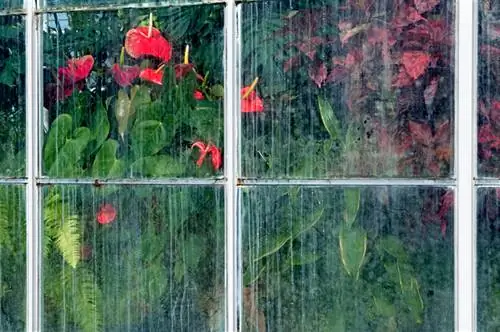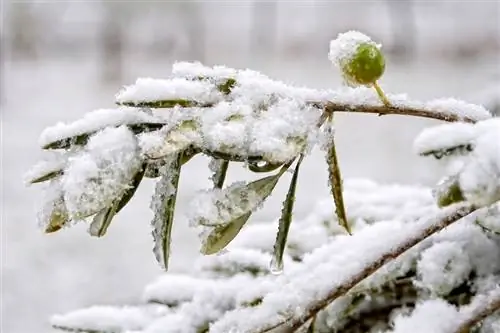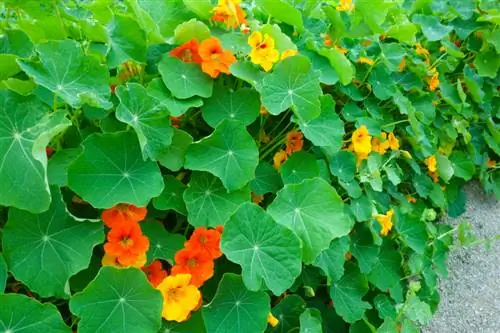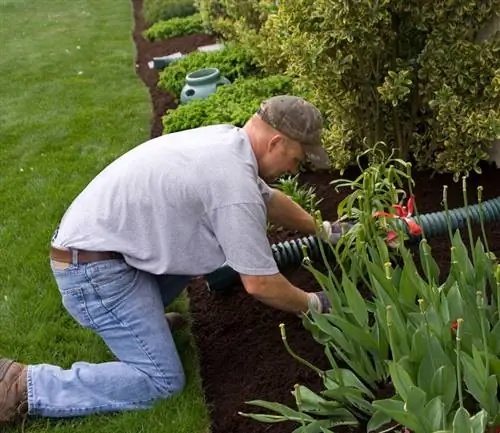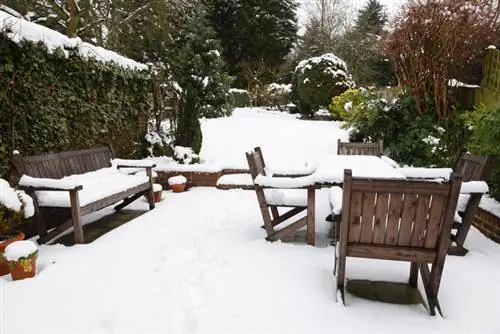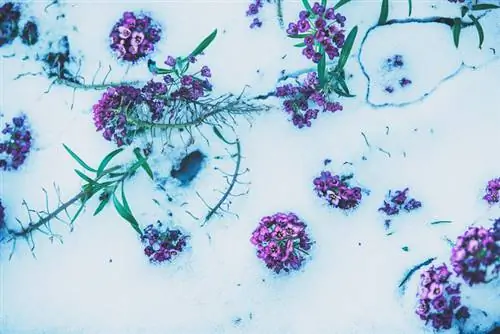- Author admin leonars@hobbygardeners.com.
- Public 2023-12-16 16:46.
- Last modified 2025-01-23 11:21.
The best thing that can happen to your beloved potted plants is if they are moved to the greenhouse to overwinter. A certain amount of care is also required during the vegetation break for exotic plants, because the temperatures, like the lighting conditions, have to be adapted to the plant species.
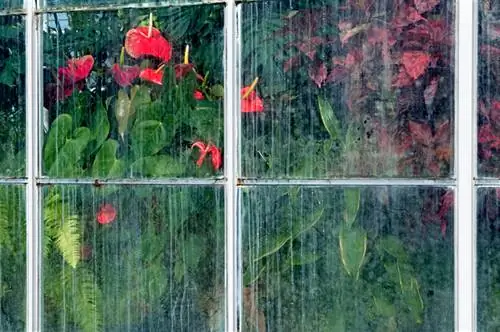
Why is a greenhouse important for wintering?
A greenhouse for overwintering offers ideal conditions for frost-sensitive potted plants to get through the cold months. Important factors are optimal temperatures, sufficient light and moderate watering, as well as pest control.
Even if peace slowly returns to the greenhouse after the annual outdoor gardening season, it can still be used as winter quarters for the sensitive potted plants or perennials in the coming months, even if it is a so-called cold house. All flowers and plants that are not frost-resistant gointo the greenhouse to overwinter at the end of October at the latest and find there the best conditions for biologically he althy growth and faster flower formation in the coming spring.
It's all about optimal temperatures
Since the majority of frost-sensitive plants come from the warmer regions of the world, on the one hand they are very warm-spoiled, but they require a certain period of rest outside of their vegetation, which can vary greatly in terms of their heat requirements. Some examples of this:
| Plant type | Optimal temperature (°C) | Light conditions |
|---|---|---|
| Banana bush | 5 to 10 | as bright as possible |
| Angel Trumpet | 5 to 18 | bright |
| Fig | 2 to 5 | dark |
| Pomegranate | 5 to 10 | dark |
| Hibiscus | 10 to 15 | bright |
| Oleander | 10 to 15 | bright |
| Olives | 0 to 10 | bright |
What is important for potted plants in winter
- If an unconditioned greenhouse is used for overwintering and temperatures rise to over 10 °C, the plants need a lot of light. On gray winter days,if possible, artificial lightshould be used.
- Watering should only be done very moderately during the resting phase of the exotic plants, as many specimens cannot tolerate water at all during this time. Important: If some species lose leaves during the winter, this is a sure sign thatwas not watered too little, but too much..
- Pests also feel right at home in the protective winter quarters under glass, so the potted plants should be checked regularly for signs of feeding by spider mites, black weevils and the other pests known from summer.
Tip
So that you can soak up as much of the last autumn sun as possible, it is better to move your plants into the greenhouse for overwintering as late as possible and only when there is an immediate risk of frost.

